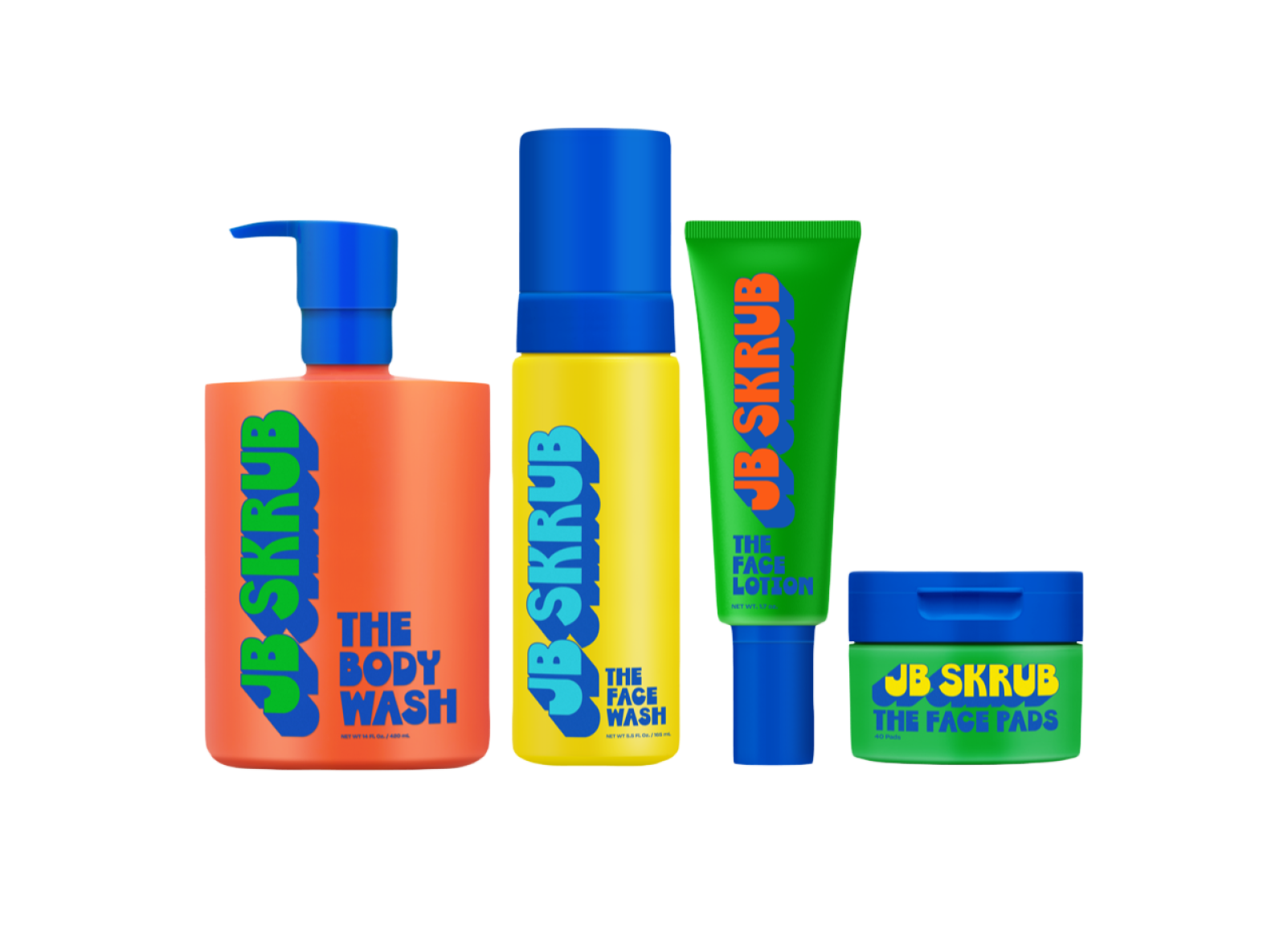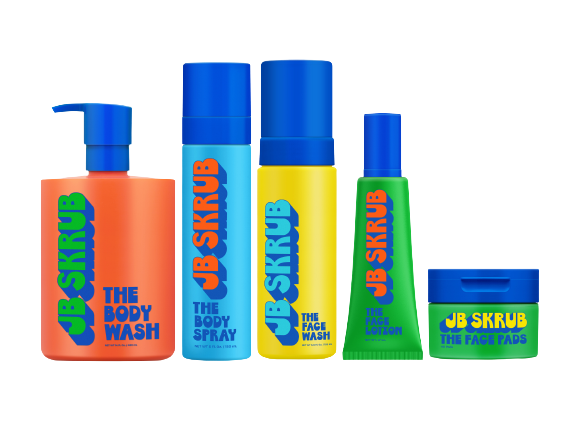Acne Answers: A Comprehensive Parent's Guide to Teen Skincare


As the parent of a teen, there’s a lot to navigate that may have changed since you were younger. Social media can be scary and all-pervasive. Parties are now “meet-ups” or “hangs.” The “cool” clothes they must have appear aggressively unattractive to you. Still, there’s one universal rite of passage for teens that hasn’t changed, and that’s acne. Although it’s a universal experience, for some teens, acne can impact not only their physical appearance but also their emotional well-being. Navigating your teen's journey through acne involves understanding the causes, implementing effective skincare practices, and fostering a positive self-image.
Understand the Dynamics of Teen Acne:
Acne is a multifaceted skin condition influenced by various factors. One of the primary contributors is hormonal changes during adolescence. The surge in hormones, particularly androgens, leads to increased oil production (sebum) in the skin. Combined with the shedding of dead skin cells, this excess oil can clog hair follicles, creating an ideal environment for the proliferation of acne-causing bacteria.
While the biological underpinnings are unavoidable, genetics can also play a role. If a parent experienced acne during their teenage years, there's a higher likelihood that their child may face similar challenges.
Encourage a Holistic Approach to Teen Skincare:
Effective acne management extends beyond skincare products. Parents can play a pivotal role in encouraging a holistic approach to teen skincare by emphasizing the following:
- Dietary Habits: A well-balanced diet rich in fruits, vegetables, and whole grains provides essential nutrients that support overall skin health. Encourage your teen to minimize processed foods and sugary snacks, as they can contribute to inflammation.
- Hydration: Water is crucial for flushing toxins from the body and maintaining skin elasticity. Ensure your teen drinks an adequate amount of water daily to promote clear and radiant skin.
- Physical Activity: Regular exercise helps regulate hormones and reduces stress, both of which can positively impact skin health. Encourage your teen to engage in activities they enjoy, whether it's jogging, dancing, or team sports.
- Adequate Sleep: Lack of sleep can disrupt hormonal balance, potentially exacerbating acne. Establishing a consistent sleep routine is essential for overall well-being.
Establish a Tailored Skincare Routine:
Creating a suitable skincare routine is a cornerstone of managing teen acne. The goal is to strike a balance between addressing specific skin concerns and maintaining a routine that is easy to follow. Guide your teen through the essentials:
Cleansing: Choose a mild, PH balanced, non-comedogenic cleanser to remove dirt, oil, and makeup. Emphasize the importance of cleansing twice a day, especially after sweating.
Moisturizing: Contrary to common belief, even oily skin needs hydration. Opt for a lightweight, fragrance-free moisturizer to keep the skin balanced and prevent excessive dryness or irritation.
Sun Protection: Sunscreen is a non-negotiable component of any skincare routine. Select a broad-spectrum sunscreen with at least SPF 30 and encourage your teen to apply it daily, even on cloudy days.
Avoid Harsh Products: Discourage the use of abrasive scrubs or harsh cleansers, as they can strip the skin of its natural oils and lead to increased oil production as a compensatory mechanism.

Understand Acne Triggers:
Identifying and addressing specific acne triggers is crucial for effective management. While hormonal changes are inherent to adolescence, other factors can exacerbate acne. Help your teen recognize and manage the following triggers:
- Stress: Stress can trigger hormonal fluctuations that contribute to acne. Teach your teen stress-management techniques such as deep breathing, meditation, or yoga.
- Dietary Triggers: Certain foods, such as dairy and high-glycemic-index foods, may exacerbate acne in some individuals. Encourage your teen to pay attention to their diet and observe how specific foods affect their skin.
- Makeup and Skincare Products: Some makeup and skincare products contain ingredients that can clog pores. Advise your teen to choose non-comedogenic and clean products and to remove makeup before bedtime. Sometimes kids are exhausted after a long day, but encourage your teen never to go to bed wearing make-up.
- Clean Linens: Using clean linens is a good practice to help prevent acne. Dirty or unwashed linens can harbor bacteria, oils, and other impurities that may contribute to skin issues. Pillowcases can accumulate oils, sweat, and bacteria from your face and hair. Change your pillowcase at least once a week, and consider using a silk or satin pillowcase, which can be gentler on the skin.
- Use a clean towel: After washing your face, make sure to pat it dry with a clean towel. Avoid using the same towel for an extended period, as it can become a breeding ground for bacteria. Opt for a gentle, soft towel to minimize irritation.
- Hormonal Changes: In some cases, hormonal fluctuations may require medical intervention. If your teen's acne is severe or persistent, consider consulting with a dermatologist who can provide targeted treatments or medications.
Teach Proper Pimple Care:
When dealing with acne, it's essential to educate your teen on proper pimple care to minimize the risk of scarring and inflammation. Emphasize the following:
- Hands Off Approach: Picking, squeezing, or popping pimples may be really tempting but it can also introduce bacteria, leading to infection and scarring. Encourage your teen to resist the urge to touch their face or squeeze every bump that comes along.
- Spot Treatment: There are many spot treatments and pimple patches out there. They can work for a few pimples, but consider toner pads as an option to help mitigate acne in the long haul. Succinic acid toner pads (like ours!) are gentle enough to avoid a burning sensation (like the traditional ones with salicylic acid), but they are effective enough to promote skin turnover and kill bacteria.
- Clean Makeup Tools: If your teen uses makeup, stress the importance of regularly cleaning brushes and sponges. Dirty tools can harbor bacteria that contribute to acne.
- Consistent Routine: Consistency is key when it comes to skincare. Encourage your teen to stick to their routine even when their skin appears clear, as prevention is just as important as treatment.

Promote Positive Self-Esteem:
Acne can take a toll on a teen's self-esteem. As a parent, it's important to foster a positive self-image and open communication. Consider the following strategies:
Encourage Open Dialogue: Create a safe space for your teen to express their concerns and feelings about their skin. Listen without judgment and offer reassurance.
Model Positive Behavior: Demonstrate a healthy attitude towards your own imperfections and self-image. Children often emulate their parents' behaviors and attitudes.
Focus on Inner Qualities: Remind your teen that their worth extends far beyond their physical appearance. Highlight their strengths, talents, and unique qualities.
Professional Support if Needed: If your teen's emotional well-being is significantly impacted by acne, consider involving a mental health professional who can provide additional support and coping strategies.
When to Seek Professional Help:
While most cases of teen acne can be effectively managed with a consistent skincare routine, some situations may require professional guidance. If your teen's acne is severe, persistent, or causing emotional distress, consider consulting with a dermatologist. Dermatologists can assess the specific needs of your teen's skin and prescribe medications or recommend specialized treatments.
Guiding your teen through the challenges of acne involves a multifaceted approach that encompasses skincare, lifestyle choices, and emotional support. By actively participating in their skincare journey and fostering positive self-esteem, parents can empower their teens to navigate this transitional phase with confidence and resilience. Remember, acne is a temporary phase, but the lessons learned about self-care and self-love can last a lifetime.









